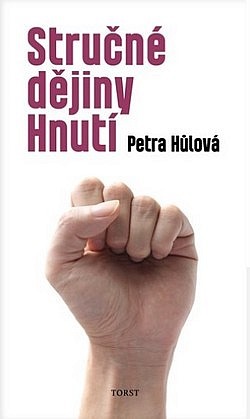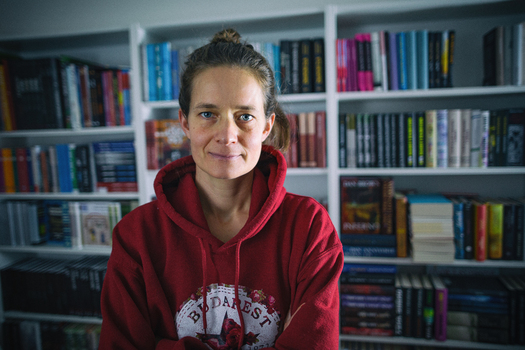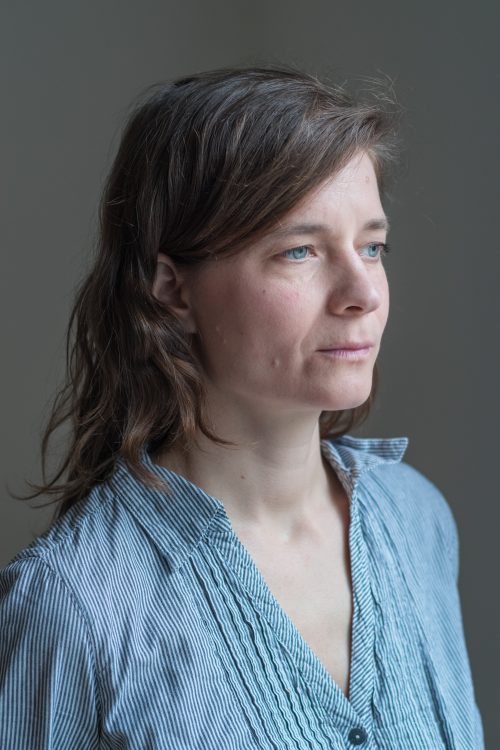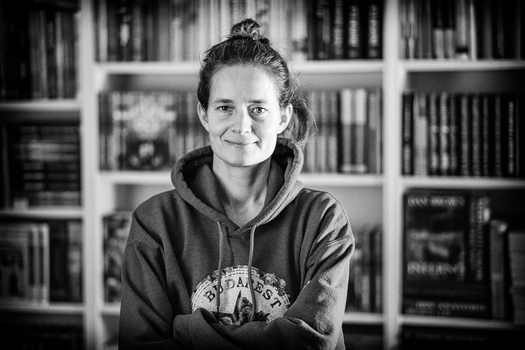
The Movement
April 2018, 184 pages
Available material: English sample, French sample, German sample
Rights sold to:
USA (Worldeditions) titled The Movement, Poland (Afera), Slovenia (Cankarjeva založba), Romania (Curtea Veche), Italy (Atmospehere libri), Hungary (Metropolis Media), Spain (Editorial Funambulista), Denmark (Jensen & Dalgaard), Serbia (Clio), Norway (Solum Bokvennen)
Society is close to fully embracing The Movement’s reforms. What happens to those who cannot adjust?
The Movement’s founding ideology emphasises that women should be valued for their inner qualities, spirit and character, rather than their physical attributes. Men have been forbidden to be attracted to women based on their bodies. Those who continue with unreformed attitudes submit to internment and re-education. However, The Movement also struggles to reform women and their ‘old attitudes’.
The Movement’s historian is an unapologetic guard at one of the re-education institutions. She describes The Movement’s beginnings, her own journey, the challenges faced by all and the stakes of the programme. She believes The Movement is nearing its final victory – universal acceptance.
Unapologetic, nuanced, terrifying. Petra Hůlová at her best!
“One part Animal Farm, one part The Handmaid’s Tale, one part A Clockwork Orange, and (maybe) one part Frankenstein, Czech writer Hůlová’s novel dismantles the patriarchy and replaces it with a terrifying alternative.”
– Kirkus Reviews
“In a dystopian future where women rule, society is re-educated to teach men―and women―that women should be valued for traits other than their appearance or age. The novel is dark and satirical; while feminism is in the foreground, the author somehow manages a balancing act between manifesto and critique.”
―Lithub
“Hůlová’s story can be read primarily as a timeless fable about how the best of human intentions always end up paving the road to some totalitarian hell.”
― Dublin Review of Books
“Hůlová offers a thought-provoking and disturbing dystopian tale of a feminist revolution.”
— Publishers Weekly
From the sample translation
I had a suitcase, that was it. My mother’s old suitcase with wheels, the one that she used to take with her on business trips, crisscrossing the old world, until the doctor told her she had to stop, because of her varicose veins.
It was late July, gruelingly hot, the temperatures that week were record-breaking. I forgot my bottle of water on the bus that I took from our town to the one nearest the Institute. In our town, all we had was a recruitment office.
The woman at the recruitment office told me that the Institute used to be a meatpacking plant and its current purpose was ongoing “small-scale” work. It had a capacity of such and such, its own brain trust, and, thanks to the generous support of its (all-female) donors, it could concentrate on its mission without compromise.
I already knew all that, of course, but the deciding factor for me was the availability of housing for out-of-town employees.
When I informed my mother, she was delighted.
“Live your dream,” she said. “And never give an inch,” she added as I walked out the door, dragging that awful suitcase behind me. It was a quote from a Movement campaign that nowadays no one remembers, and even at the time my mother and I found it a bit silly.
Because you have to define what it means not to give an inch or the Movement ends up sounding like some Nazi feminist offshoot slash self-appointed dictatorship of spoiled princesses, when in fact nothing could have been further from the truth.


